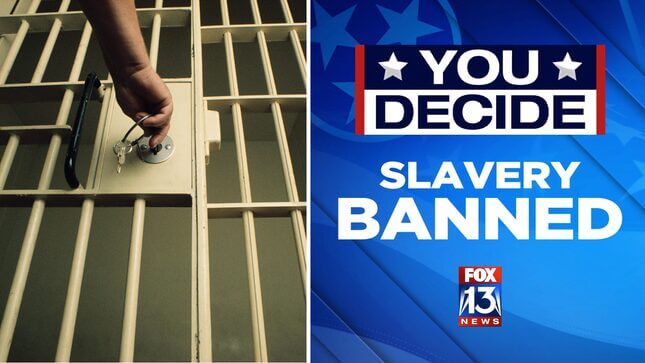In 2022, Some States Voted to Outlaw Slavery—Others Didn’t
Viral tweets are dunking on Tennessee for just now voting to outlaw slavery. But we should really be asking why others aren't doing the same.
Politics

Here’s something I didn’t expect to type in 2022: During Tuesday’s midterm election, five states voted on whether to outlaw continued slavery through forced prison labor, and as of Wednesday afternoon, only three have voted to outlaw it. Alabama, Tennessee, and Vermont voted in favor of a ballot measure that would amend their state Constitutions to prohibit slavery and involuntary, forced servitude as punishment for crime; results in Oregon are still too close to call and Louisiana roundly rejected the amendment.
The ballot measures in Alabama, Tennessee, and Vermont won’t take immediate effect but they create grounds for legal challenges against prison policies that force incarcerated people to work or threaten them with sanctions that include loss of certain “privileges,” like phone calls. Notably, the 13th Amendment explicitly allows incarcerated people to be enslaved as punishment for their crimes.
-

-

-

-

-

-

-

-

-

-

-

-

-

-

-

-

-

-

-

-

-

-

-

-

-

-

-

-

-

-

-

-

-

-

-

-

-

-

-

-








































